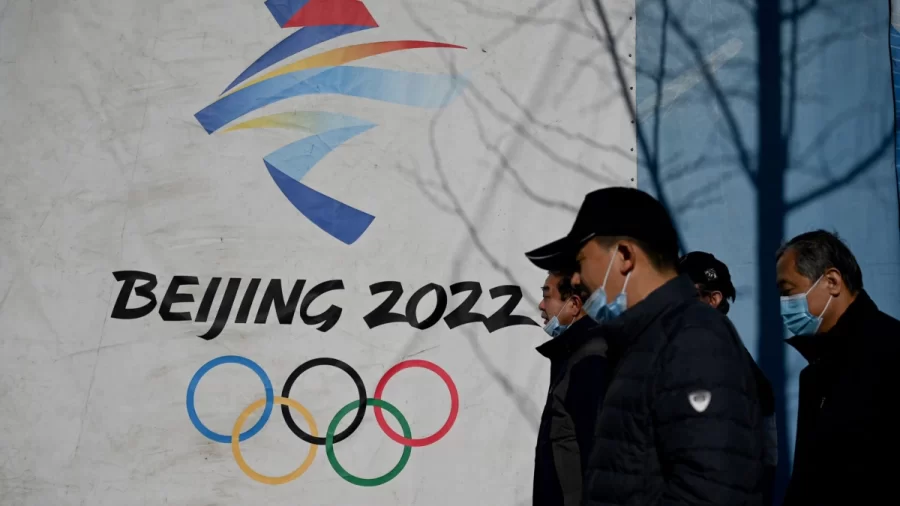The Controversies of the 2022 Beijing Olympics
February 28, 2022
Beijing- Amidst concerns of human rights violations, boycotts, COVID-19, and the threat of international war, the stage was set for China’s third Olympics. Athletes from around the world settled into Beijing’s state-of-the-art Olympic village that has made control and vigilance a foreground more than any other venue in the games’ history.
Tokyo’s summer Olympic games instilled a variety of protocols to limit the spread of COVID-19 in Japan. Despite this, athletes still were granted some freedom when exploring the village, whether it be walking to local convenience stores, eating at restaurants, before ultimately receiving the freedom to roam Tokyo. This was not the approach China decided to take, especially with the floating stigma that associated the pandemic’s origins with their ineptitude. Instead, the global superpower used the opportunity to flash their technological advancements and deep pockets.
To host the athletes, China constructed several facilities spread across over 100 miles of land that emphasized autonomy and a reduced carbon footprint. Cooks, servers, and many other close-contact occupations are completely replaced by robots, with teams of cleaning crews working around the clock to sterilize living spaces.
It didn’t take long for issues to arise following Feb. 4th’s torch lighting. Zhu Yi, an American-born figure skater who decided to compete for China, received heavy criticism on social media after placing last in women’s singles with a subpar performance on the ice. Many internet users in China believed she didn’t deserve a spot on the team and was taking away from the country’s native talent; an increasingly popular trend that China adopted to remain relevant in the current uber-competitive Olympic environment. Yi did not take the situation lightly.
“I was very emotional during the routine and wanted to cry,” said Yi on Feb. 7th. “I couldn’t hold it back, and the tears kept flowing.”
Beijing’s climate has also been a topic of discussion ever since China won the hosting bid back in 2015. The nation’s capital sees around one inch of snow annually, compared to the traditional 300 inches or more recorded in previous venues. To compensate, China has been using more than 300 snow machines to keep the games going, along with an estimated 49 million gallons of water.
Many athletes have complained about the disadvantages of not being able to compete on regular snowfall, and some have already suffered serious injuries early into the competition. Nina O’Brien, a San Francisco-born alpine skier for Team USA fractured her tibia and fibula during the women’s slalom event on Feb. 7th. She was taken off the course on a stretcher and won’t be able to participate in any of the remaining competitions.
“The experience that the athletes are having on the slopes will be a bit different,” said Dr. Timothy Kelson, a kinesiology professor at Georgia State. “These are the conditions that they will have to adapt to down the road.”
O’Brien’s crash unfortunately wasn’t the only incident that Monday with men’s downhill skier Dominic Schweiger losing his footing at a speed of around 75 miles per hour and Japanese snowboarder Rina Yoshika injuring her spine during a practice run. Beijing’s winter games are the first to be held completely on artificial snow.
The most recent controversy involves 15-year-old skater Kamila Valieva of the Russian Olympic Committee, who tested positive for a banned steroid called trimetazidine and was subsequently suspended on Feb. 8th. On Feb. 14th, the Court of Arbitration for Sport, or CAS, issued a statement on Valieva’s future in Beijing.
“There were serious issues of untimely notification of the results of the athlete’s anti-doping test that was performed in December 2021 which impinged upon the Athlete’s ability to establish certain legal requirements for her benefit, while such late notification was not her fault, in the middle of the Olympic Winter Games Beijing 2022.”The court’s decision would permit Valieva to continue competing for the ROC, but the damage had already been done. The world record holder had difficulty maintaining her composure in the final competition, slipping out of medal contention after a rough performance. Anna Shcherbakova, Valieva’s teammate, tentatively took home gold for their country, but the victory isn’t set in stone. The positive test on December 25th still requires a full investigation by the CAS and their next ruling could strip all accolades from the ROC.












